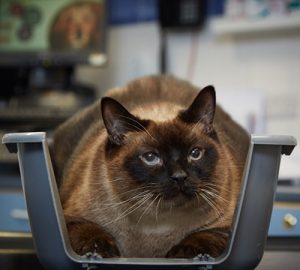International Declaration of Responsibility to Cats
While most people are aware that cats are sentient beings who are able to experience pain and pleasure, there are still many felines experiencing unnecessary suffering, whether they’re classed as ‘pets’ or ‘street cats.’
With the aim to persuade governments, non-government organisations and charities, breeders, owners and veterinary professionals to play their part in helping to increase welfare standards for cats; International Cat Care have developed an ‘International Declaration of Responsibility to Cats’.
One of the goals that they’ve addressed in the declaration, is for governments to take responsibility by developing and providing a legal framework for good feline welfare, as well as to encourage and enforce it. They believe that this, in partnership with their other detailed responsibilities, is a step in the right direction for the welfare of our feline friends.
If, like International Cat Care, you believe that the quality of life of every single cat matters, regardless of whether it lives in a home or on the streets, you can sign their petition to show your support in helping raise welfare standards.
To find out more about the details of the declaration and to sign the petition, click here.








